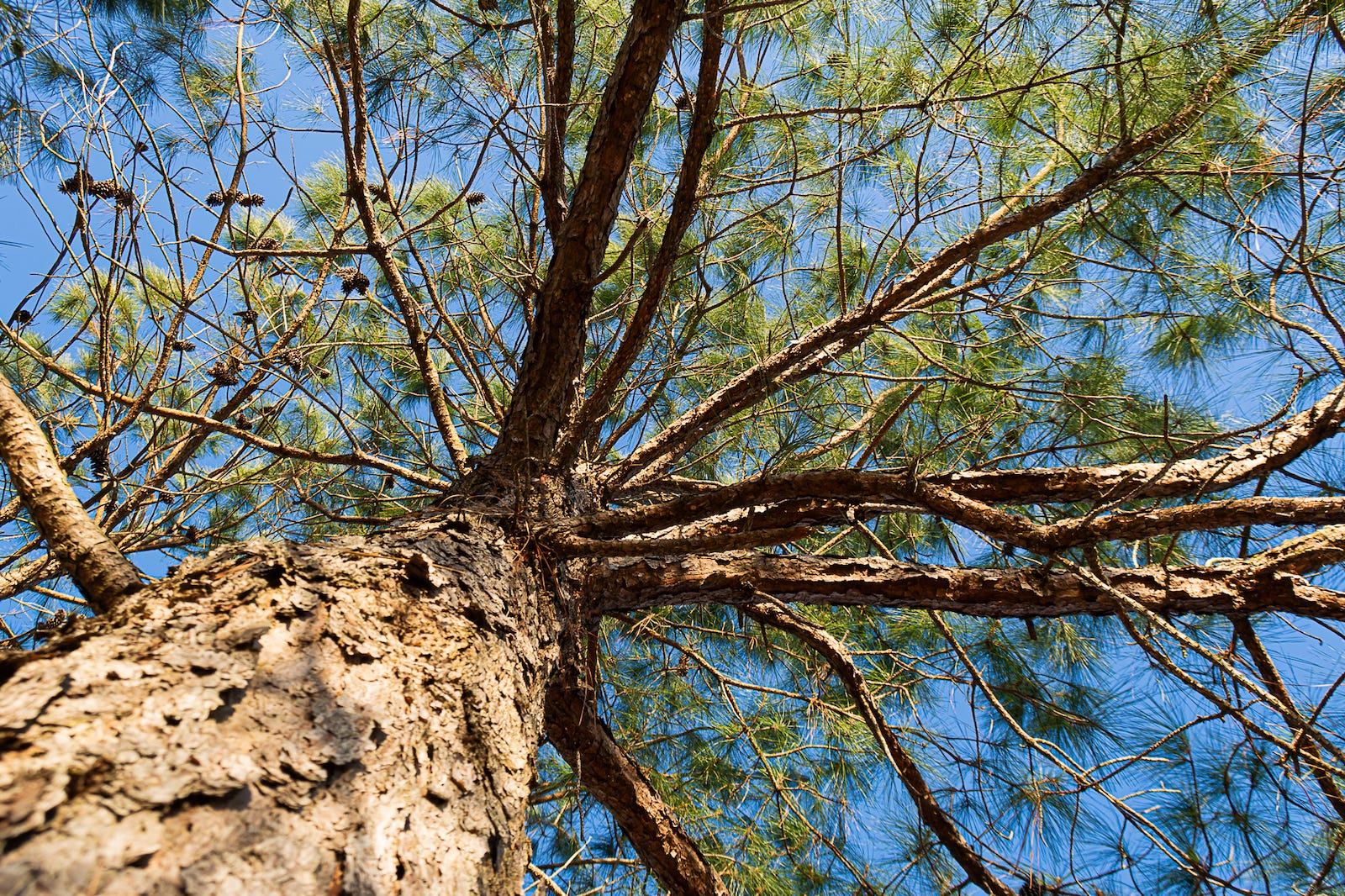How are you today?
Looking up among the pine tree branches, I imagined how the squirrels and birds saw this tree. Their size and ability to scamper up the rough bark or fly effortlessly from tree to tree gave them a perspective lost to me.
I tried to capture the squirrel’s perspective of running up the tree with my camera. Then I became curious about the bark on this tree compared to the cypress or oaks. What caused the varying characteristics, and why were they different? They all grow in similar soil across two acres, but each has unique features.
Children seem to abound in curiosity. They use every sense to discover their environment, putting everything in their mouth, experimenting with making sounds, and gazing with intent at an army of ants marching along the sidewalk.
Our two sons dismantled most of their toys, curious about how they worked and what mysteries lay hidden inside. Even as adults, they seem to revel in taking things apart using the components in novel ways.
We seem to lose that innate sense of curiosity. Instead, we become engrossed in careers, keeping up, and other responsibilities attached to adulthood. But who says we must leave behind wonder, awe, and discovery?
Film and TV producer Brian Grazer started “curiosity conversations” not long after he graduated from college. Over a lifetime, he has had conversations with thousands of people, including scientists, artists, writers, and even Princess Diana.
These conversations served as his path to becoming a life-long learner since “life isn’t about finding the answers, it’s about asking the questions.”
I have a challenge for you. What if you spent the next week simply asking more why questions—or questions of any kind? And then, listen to the answer.
Every one of us, yes, you—can use your imagination (and curiosity) and make your art.
Brian Grazer explains why and how he uses “curiosity conversations” to learn and expand his understanding of life and the world.
“There are so too many unanswered questions that we hold onto,” sings Holly Brook (aka Skylar Grey) in her haunting song, Curious.
The more I know about the world—the more I understand about how the world works, the more people I know, the more perspectives I have—the more likely it isthat I’ll have a good idea when I hear it. The less likely I’ll agree that something is “good enough.”
When you know more, you can do more.
Curiosity is a state of mind. More specifically, it’s the state of having an open mind. Curiosity is a kind of receptivity.
And best of all, there is not trick to curiosity.
You just have to ask one good question a day, and listen to the answer.
—Brian Grazer and Charles Fishman, A Curious Mind: The Secret to a Bigger Life
Be and become your best today and every day.
With gratitude,
Kathryn
Thanks for reading. Feel free to forward this weekly note to someone who would enjoy a few words of inspiration. And I always welcome your thoughts, so you can…
If a friend forwarded this email to you, and you want more, subscribe to receive my weekly newsletter in your inbox.








I love the idea of curiosity being a state of receptivity. That describes it really well. xoxoxo